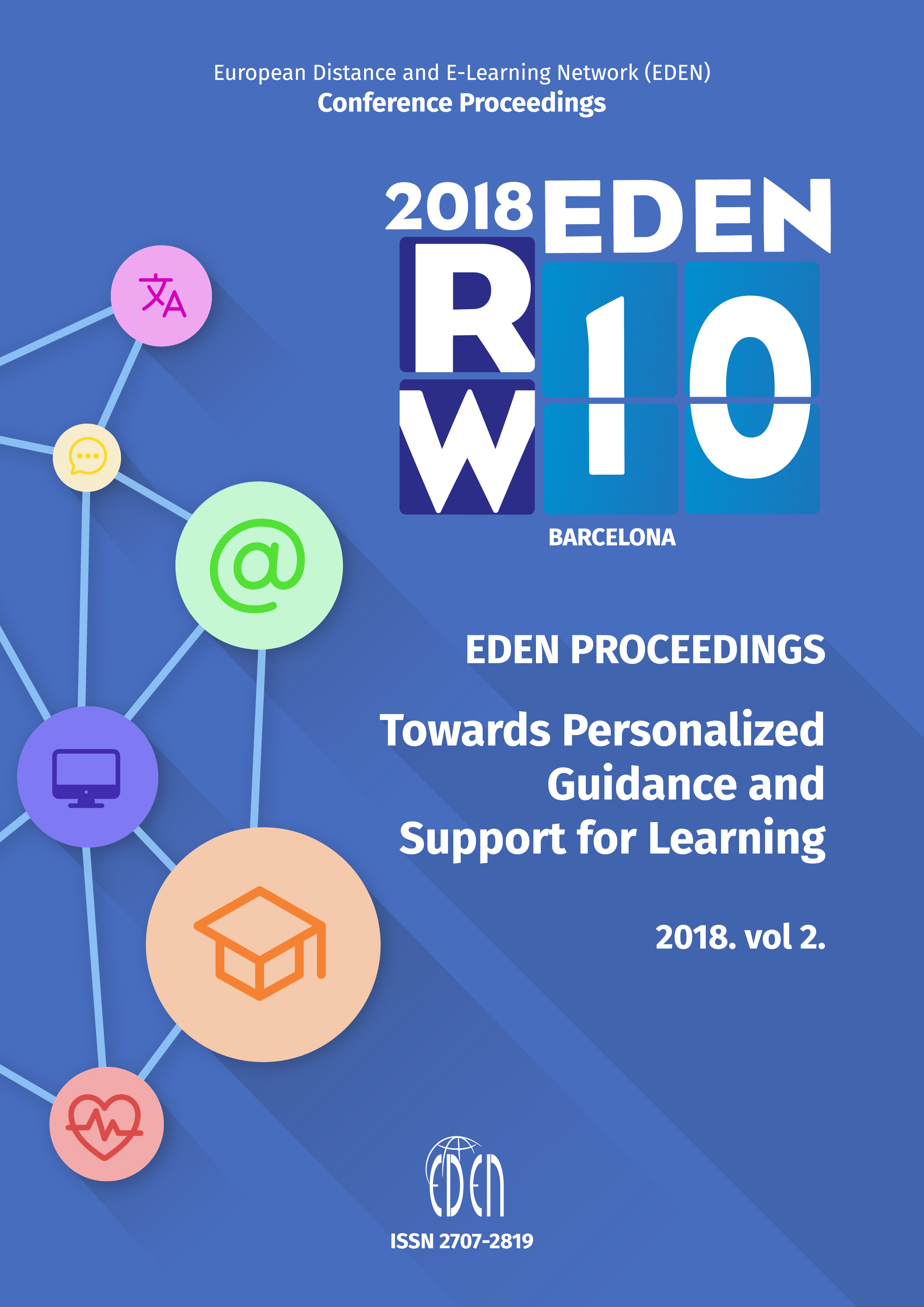Enhancing Teacher Decisions through Learning Analytics
Enhancing Teacher Decisions through Learning Analytics
Author(s): Airina Volungeviciene, Josep M. Duart, Giedrė Tamoliūnė, Justina NaujokaitieneSubject(s): Social Sciences, Education, Higher Education
Published by: European Distance and E-Learning Network
Keywords: Distance and e-learning methodology; Learning analytics; Learning effectiveness; improvement of learning experience; Tutoring; student support
Summary/Abstract: Learning analytics can be defined as the measurement and collection of extensive data about learners with the aim of understanding and optimising the learning process and environments in which it happens. In the recent decade researchers have started a fundamentally new direction of learning analytics by initially addressing big data (Picciano, 2012), educational data mining (Siemens & Baker, 2012), academic analytics, social learning and action analytics (Ferguson, 2012), as well as issues of student dropouts and ways of increasing student success (Arnold & Pistilli, 2012), with the purpose of developing a method of how learning analytics may enhance teaching and learning (Gasevic, Dawson, & Siemens, 2015). This shift revealed a completely new area of research in education with the prospect of reconsidering ways how learning analytics may contribute to better teaching and learning, addressing, in particular, issues in higher education (Zilvinskis & Borden, 2017) and massive open and online learning.The research implemented within the framework of the research project “Open and Online Learning for Digitalised and Networked Society” (project No. No. 09.3.3-LMT-K-712-01-0189) funded by the European Social Fund according to the activity “Improvement of researchers” qualification by implementing world-class R&D projects’ of Measure No. 09.3.3-LMT-K-712 focused on how learning analytics as a metacognitive tool can be applied for developing a learning analytics method for reflective teacher practice. The group of researchers builds on the description of learning analytics as a metacognitive tool for teachers as reflective professionals, but also opens new prospects for the investigation of the process of application of learning analytics as a metacognitive method in open and online learning and teaching; on the use of learning analytics data for the implementation of teacher inquiry cycle and reflection on open and online teaching; as well as improvement of curriculum and learning design.This short overview of the theoretical research adds on to the existing knowledge that teachers have tools that enhance the possibilities to identify learners’ behaviour, to track their learning scenarios and to visualise the process of teaching and learning. There are multiple possibilities to enhance learning and teaching for faster, slower, individual or group learning, but we, as professionals, need to re-discuss the practices of the application of these tools in terms of process and its participants, as well as the impact of their application in teaching and learning. This is the focus of this research: to discuss the application of learning analytics as a metacognitive tool for researching theory and practice, in order to define the principles of the application of learning analytics to enhance our teaching decisions for learning improvement.From the point of theoretical research review, the process of application of learning analytics as a metacognitive tool in open and online learning and teaching will be presented in the presentation at EDEN Barcelona Research workshop, with the summary of the research implemented in the area, as well as how learning analytics data for the implementation and reflection of teachers’ inquiry cycle (adapted by Sergis, Sampson, & Pelliccione, 2017) in open and online teaching are used. Theoretical analysis will be concluded with the observations how learning analytics data analysis is important for curriculum and learning design improvement. Theoretical research results have been further validated with the empirical research based on semi-structured interviews used to collect the data. The results of the research, the discussion and the conclusions, as well as further research ideas will be presented in oral presentation, if accepted, in EDEN Research workshop. The conclusions of the research will demonstrate that teachers as reflective professionals should understand different learning habits of their students, recognize learners’ behaviour, understand their thinking capacities, willingness to engage in the course etc., and based on this information, make real time adjustments to their course curriculum. Metacognition could be seen through different perspectives in this case: first, how teachers use learning analytics for a better understanding of students’ learning process; second, how we as teachers evaluate our own activities, how we design our work - which leads us to learning analytics as an indicator for a deeper learning process understanding.
Journal: European Distance and E-Learning Network (EDEN) Conference Proceedings
- Issue Year: 2018
- Issue No: 2
- Page Range: 160-162
- Page Count: 3
- Language: English

